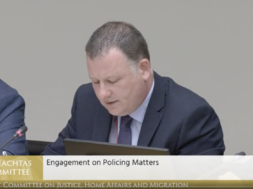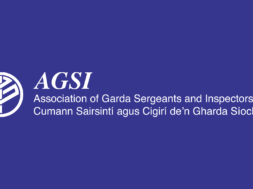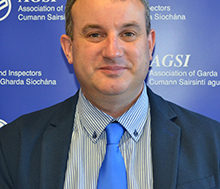Topical Issues Debate
Speech by Minister of State Kathleen Lynch TD on behalf of Alan Shatter TD, Minister for Justice, Equality and Defence
18 July 2013
The plans by the Minister for Justice, Equality and Defence for starting Garda Recruitment
John O’Mahony T.D.
I have been asked by the Minister for Justice and Equality, who is attending a Justice and Home Affairs Ministerial meeting in Vilnius, to speak on this matter.
The House will be aware that the Minister announced on Monday that he had received sanction from his colleague the Minister for Public Expenditure and Reform Mr Brendan Howlin TD to hold a recruitment competition for An Garda Síochána.
This is a very welcome development and the Minister is grateful to Minster Howlin for his sanction to proceed with this competition. The Minster firmly believes that, despite the general public service moratorium on recruitment, and the continuing financial constraints, an organisation like An Garda Síochána should have an intake of new members, even if at a modest level, on a regular basis.
Given the procedures that need to be put in place in advance of recruitment commencing, the anticipated high number of applications, and the selection process itself and the formation of a panel, it will be into 2014 before students will enter the Garda college in Templemore to begin training.
The competition will be run by the Public Appointments Service. As things stand at present, they have received some 27,000 ‘expressions of interest’ from persons wishing to join the Garda Síochána. The Minister expects there to be a large number of applicants once the recruitment process formally opens. I should also say that it is too early at this stage to indicate how many persons might be recruited, as this will depend on a number of factors including the rate of retirements.
The student/probationer training programme that these students will be embarking upon has been radically restructured. The main differences between it and the earlier programme is that the new programme carries a greater emphasis on operational policing and focuses on real life scenarios which in turn prepare students better for the policing challenges they will face. The new programme will also instil a lifelong learning philosophy for members of the Garda Síochána, with a suite of mandatory and elective courses being made available.
In the light of this revised training programme, and in view of the fact that the existing Garda recruitment panel is now approximately five years old, this panel will not be used in this or any future recruitment. Of course, people on the panel may re-apply to join the Garda Síochána once they meet the eligibility criteria.
In addition to the review of the training programme in the Garda College, the Commissioner has also been considering whether some changes could be made in the area of educational requirements to align them with the National Framework of Qualifications, while at the same time using the leaving certificate as an optional entry level requirement. The objective would be to align educational requirements with the official framework, as well as opening up access to those who may not have completed the Leaving Certificate but have completed another course which demonstrates their abilities, perhaps in a less academic environment. Such a change could also make it more straightforward to recognise qualifications achieved outside Ireland as the framework provides a comparative tool with qualifications gained outside the State. A decision will be taken on this as part of the preparations for the holding of a competition.
The Minister is determined that the resources of An Garda Síochána will be used in the best, most effective and efficient way possible. The House will be aware, for example, that the agreement reached with the Garda Associations includes a provision for a review of the Garda Síochána and that this review includes the structure, organisation and staffing of An Garda Síochána. The review is due to start in September of this year and to be completed in June of next year.
He remains confident that the primary Garda objective of combating crime will continue to be achieved, and that, despite the pressure on the public finances, the Force will continue, with this fresh impetus of new recruitment, its excellent work of preventing and detecting criminal behaviour.
ENDS









